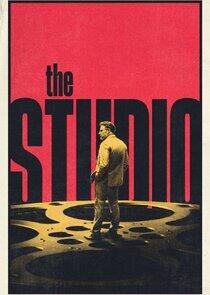L'Armée des Romantiques - Season 1

Season 1

Episodes

La révolution romantique (1827-1832)
Paris 1827, a young generation of artists, led by Hugo, Dumas and Delacroix, is determined to revolutionize art. Romanticism makes its entrance in France. With Sardanapalus as its manifesto, this new artistic movement breaks the codes and invents a new way of writing, painting and composing. Hernani, La Peau de Chagrin, Notre Dame de Paris, the Symphonie Fantastique, will make this romantic army triumph, ready to do anything to make a name for itself and win the battle against the classics. From their artistic commitment will be born a political conscience. While in the streets the people grumble and demand the Republic, they will not stop fighting until freedom is in power.

La vie comme un roman (1834-1848)
1848 the Romantics are everywhere. Their works are performed in the theater, appear in serials in the newspapers, invade the windows of bookstores. Hugo is elected to the academy, Dumas has inaugurated his theater, Balzac has already written 50 novels and wants to write twice as many, the Human Comedy occupies his entire mind. Sand, recently divorced, opens the doors of her Nohant estate to her friends, Delacroix's painting meets Chopin's music while George's pen unfolds. In Paris, Nerval and Gautier elevate bohemia to an art of living. All together, they create their myth even if it means slightly romanticizing their lives.

Le crépuscule romantique (1848 - 1855)
The February Revolution of 1848 swept away the Monarchy and brought the poets to power. Lamartine proclaimed the Republic. Dumas, Hugo and Sand got involved. But when it came to electing their new president, the French chose Louis Napoléon Bonaparte. Hugo, elected to the Assembly with the conservative party, felt his convictions waver. He could not close his eyes to the misery that surrounded him. A young painter made headlines by representing the people in his paintings, Courbet invented realism. Balzac died leaving behind him a colossal body of work that had consumed all his strength. When Louis Napoléon proclaimed himself emperor, Hugo definitively shifted to the left. He had no choice but to flee France, followed by a ruined Dumas. They would not be there to say goodbye to their friend Nerval.

L'ère de l'émancipation (1855-1874)
Exiled in Guernsey, Hugo rediscovers his taste for great novels. With the help of Juliette Drouet, he completes Les Misérables, while in Paris young artists struggle to make a name for themselves. Madame Bovary, Les Fleurs du Mal, and Le Déjeuner sur l'herbe are censored. Delacroix dies, leaving Baudelaire like an orphan. The poet no longer finds his place in this flashy Paris redesigned by Haussmann. Allergic to modernization, he goes into exile in Belgium, where he will only return to die. Nadar makes photography the new art, and inspires the first futuristic novels of Jules Verne... But soon the war sounds the end of Napoleon III. Hugo returns to France, a hero. With Sand, Gautier and Dumas, they will finally witness the triumph of the Republic and Liberty.
Recently Updated Shows

MobLand
With the most powerful clients in Europe, MobLand will see family fortunes and reputations at risk, odd alliances unfold, and betrayal around every corner; and while the family might be London's most elite fixers today, the nature of their business means there is no guarantee what's in store tomorrow.
MobLand follows two generations of gangsters, the businesses they run, the complex relationships they weave and the man they call upon to fix their problem.

Daredevil: Born Again
Matt Murdock finds himself on a collision course with Wilson Fisk when their past identities begin to emerge.

The Studio
As movies struggle to stay alive and relevant, Matt and his core team of infighting executives battle their own insecurities as they wrangle narcissistic artists and craven corporate overlords in the ever-elusive pursuit of making great films. With their power suits masking their never-ending sense of panic, every party, set visit, casting decision, marketing meeting, and award show presents them with an opportunity for glittering success or career-ending catastrophe. As someone who eats, sleeps, and breathes movies, it's the job Matt's been pursuing his whole life, and it may very well destroy him.

